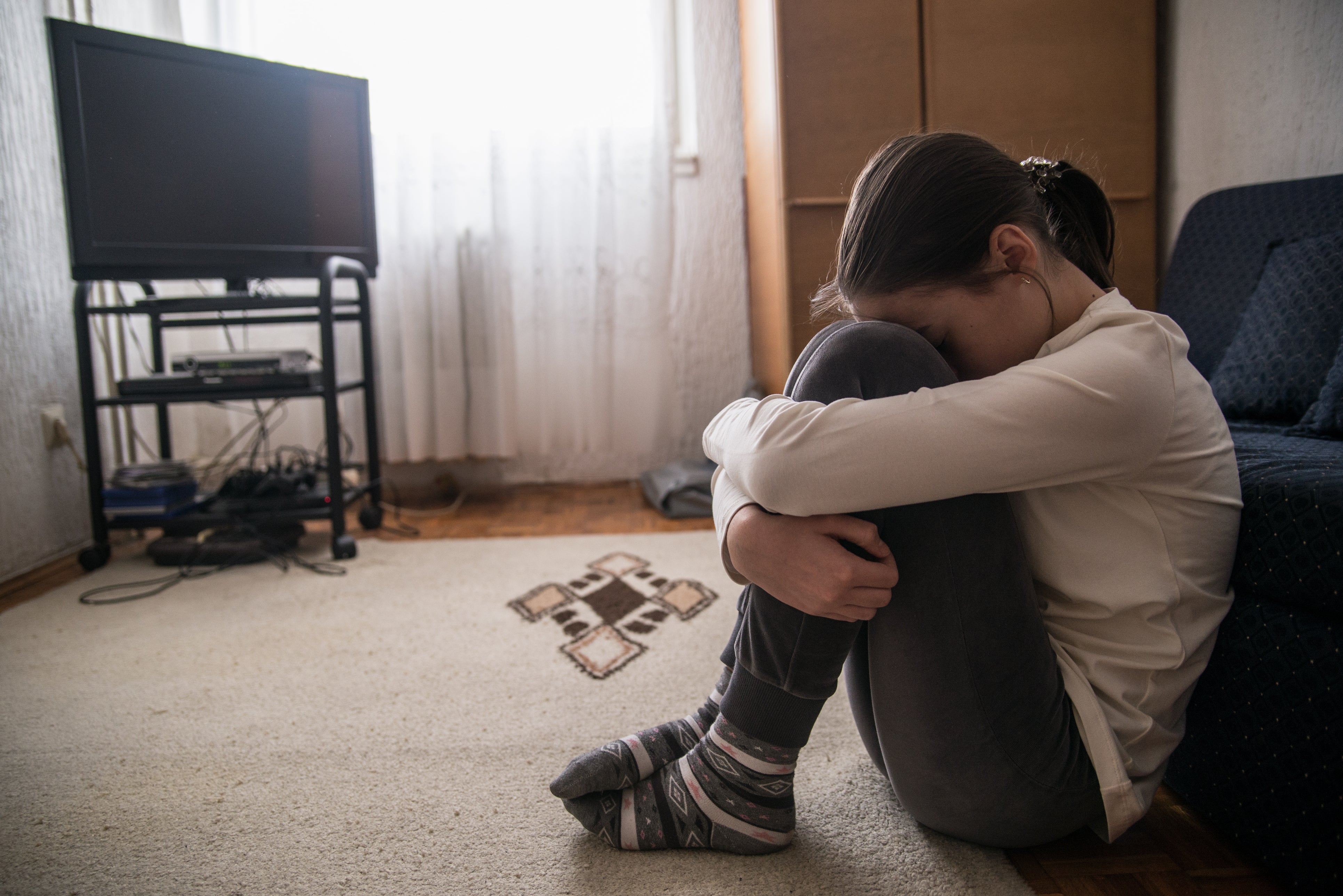Girls’ mental health ‘on a precipice’ as thousands in ‘deep distress’
By the age of 18, girls are twice as likely to experience mental health problems than boys, according to a new study

Thousands of girls are concealing feelings of “deep distress” from parents and teachers, according to an “alarming” new report which reveals a stark discrepancy between the mental health of boys and girls.
An analysis of data from 15,000 secondary school students by Steer Education uncovers the growing gulf between the mental wellbeing of boys and girls, with experts fearing this could be a long-lasting consequence of the pandemic.
Online responses gathered from 92 state secondary schools in England by the mental health platform reveals that girls aged 11 were 30 per cent more likely to suffer from poor mental health than boys of the same age.
By the age of 18, girls are twice as likely to experience mental health problems than boys.
According to the data, the number of girls who are staying silent about their struggles has also risen, with 80 per cent of girls electing to hide feelings of unhappiness, compared with 60 per cent before the pandemic.
Girls are also 33 per cent more likely to suffer with poor mental health than those of the same age prior to the pandemic, while boys are 12 per cent more likely to do so.
The report suggest that girls’ mental health is most at risk between the ages of 14 and 18.
The news comes as record numbers of children and young people are seeking support from NHS mental health services as we approach the third year of the pandemic.
Between April 2021 and October 2021, the number of children aged under 18 needing support for issues ranging from self-harm to eating disorders had increased by 77 per cent compared with the same period in 2019.
Simon Antwis, Steer Education’s senior education consultant, said: “Schools are understandably deeply worried by the growing numbers of students with poor mental health. We should be particularly alarmed by the state of girls’ mental health in secondary schools – it is at a precipice and the pandemic has exacerbated a worrying trend we have seen now for many years.
“The growing gulf between boys’ and girls’ mental health looks to be one of the long-lasting effects of the pandemic, with recovery from school closures taking a long time.
“But perhaps particularly concerning is the number of girls who are now keeping their worries and fears to themselves, making it much more difficult for their teachers to identify them as vulnerable and in need of support,” he added.
Mental health services for children and young people reached breaking point in 2021, with 100 per cent of NHS trust leaders polled stating that demand had increased compared to six months ago.
Speaking in May 2021, deputy chief executive of NHS Providers, Saffron Cordery, said: “Covid-19 has clearly had a big impact on children's lives and their mental health.
“As the NHS focuses on recovery from the pandemic, we must recognise the extent of its impact on mental health services and ensure they also get the focus and attention they need.
“Despite welcome support and improved funding for some mental health services over recent years, the pandemic has brought into sharp focus the impact of rising demand and chronic underinvestment in beds, workforce and capital. We are now into a time of reckoning.”
Join our commenting forum
Join thought-provoking conversations, follow other Independent readers and see their replies
Comments
Bookmark popover
Removed from bookmarks